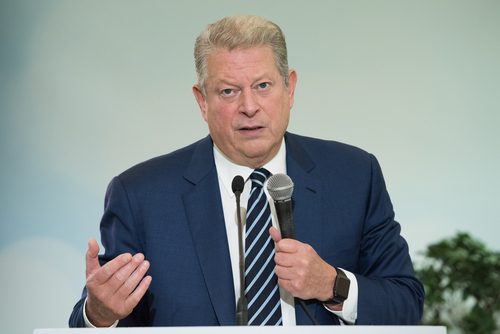While the neo-luddites from Greenpeace and Friends of the Earth held a “kangaroo conference” in Africa to condemn genetically enhanced crops, a group of scientists, farmers and even priests from around the world met at the Vatican last month to extol the “moral imperative” of agricultural biotechnology. The meeting, co-sponsored by the U.S. Embassy to the Holy See and the Pontifical Academy of Sciences, sought to dispel the spurious myths surrounding genetically enhanced crops and discuss their role in feeding the world’s estimated 1.5 billion hungry people. This marks one more advancement in fighting global hunger and improving agriculture around the world.
“Ensuring all men their daily bread is the best way to promote the dignity of humankind,” U.S. Ambassador to the Holy See Jim Nicholson wrote in
in the International Herald Tribune. “Biotechnology offers a scientifically sound means to feed the world’s neediest.” At the conference, he argued that applying genetic technology to food crops in starving nations was a matter of “life and death.”
Ambassador Nicholson had particularly harsh criticism for anti-biotech activists. “The worst form of cultural imperialism is to deny others the opportunities we have to take advantage of new technologies to raise up our human condition,” he said at the conference. Nicholson added that anti-biotech advocates “suggest that it is better for thousands to die than for hungry people to risk eating the same corn that Americans have been eating every night for the last nine years.”
Vatican officials agree. Botanist Peter Raven, a member of the Pontifical Academy of Sciences, said that the opponents of biotech “don’t really have the right information about the new science.” Raven added: “It would be very foolhardy to not use [biotech crops], particularly in a world that needs to feed so many people.” Father Gonzalo Miranda, dean of the bioethics school at the Regina Apostolorum Pontifical University, also expressed support for biotech crops. Invoking the book of Genesis, Father Miranda explained that mankind is the “gardener of creation.”
The conference also heard from two farmers who plant biotech crops in developing nations. They testified that their incomes and yields were up, while their pesticide use was down. Sabina Kohza, a farmer from South Africa, told the conference that she was originally opposed to biotech crops, but after two years of growing them she said: “I can tell you that I am a very proud consumer, grower, and proud rural woman in agriculture who is growing genetically modified maize.“


